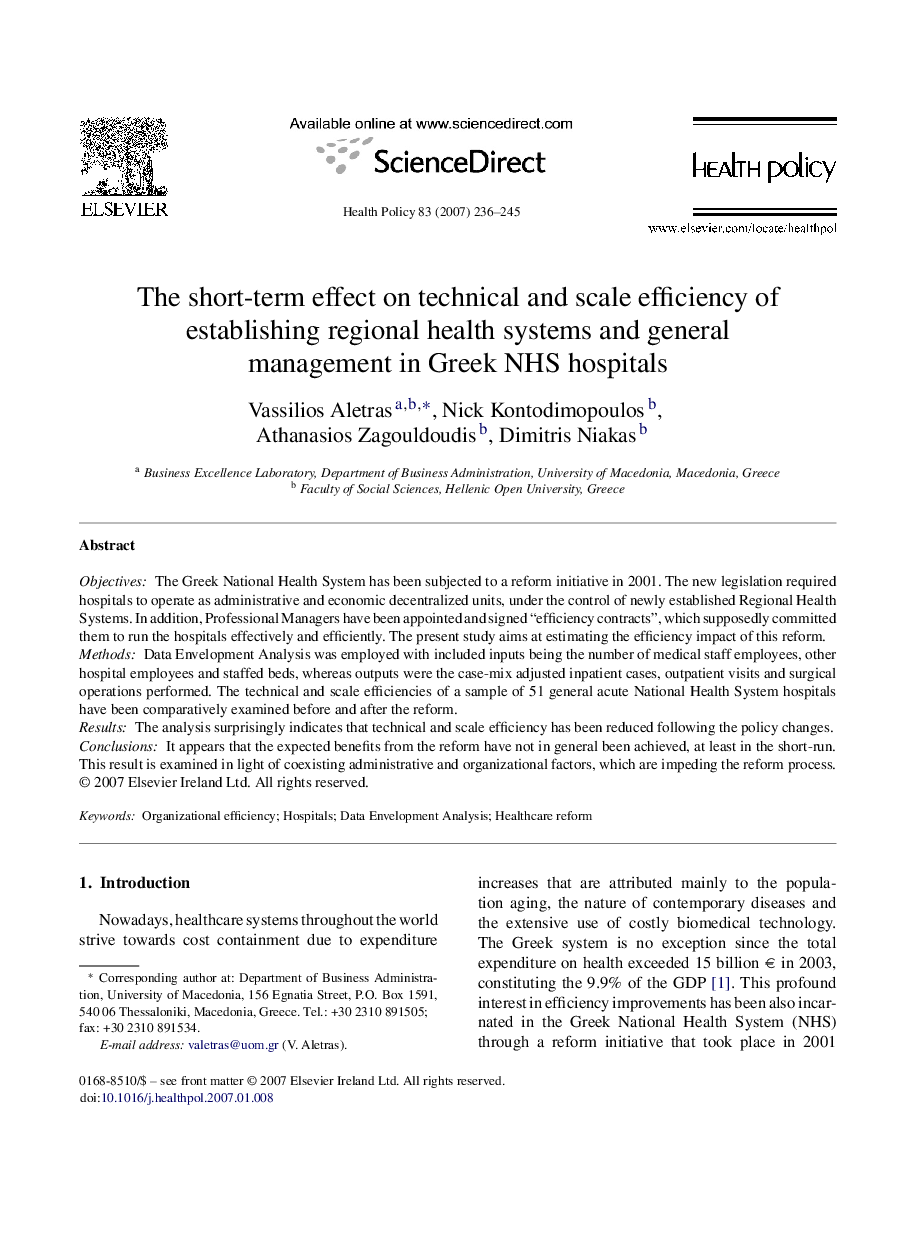| Article ID | Journal | Published Year | Pages | File Type |
|---|---|---|---|---|
| 4198946 | Health Policy | 2007 | 10 Pages |
ObjectivesThe Greek National Health System has been subjected to a reform initiative in 2001. The new legislation required hospitals to operate as administrative and economic decentralized units, under the control of newly established Regional Health Systems. In addition, Professional Managers have been appointed and signed “efficiency contracts”, which supposedly committed them to run the hospitals effectively and efficiently. The present study aims at estimating the efficiency impact of this reform.MethodsData Envelopment Analysis was employed with included inputs being the number of medical staff employees, other hospital employees and staffed beds, whereas outputs were the case-mix adjusted inpatient cases, outpatient visits and surgical operations performed. The technical and scale efficiencies of a sample of 51 general acute National Health System hospitals have been comparatively examined before and after the reform.ResultsThe analysis surprisingly indicates that technical and scale efficiency has been reduced following the policy changes.ConclusionsIt appears that the expected benefits from the reform have not in general been achieved, at least in the short-run. This result is examined in light of coexisting administrative and organizational factors, which are impeding the reform process.
